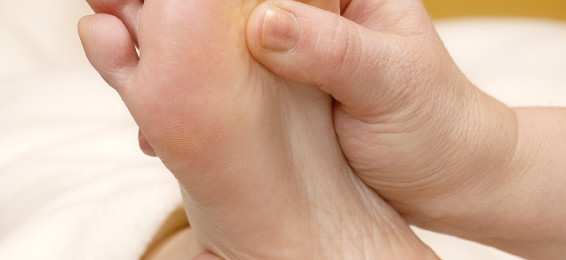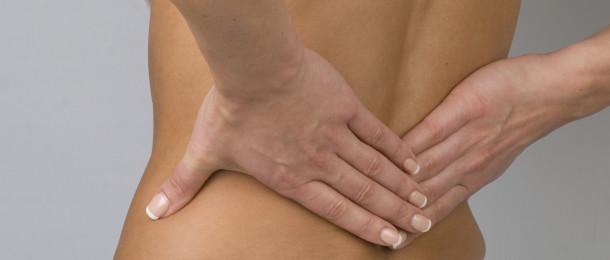Relaxation Techniques For Chronic Pain Management – Part Two

In the first article of this series, the types of psychological stress were presented as well as how the body responds to stressful situations. It’s easy to dismiss certain experiences in life as not having an impact; however, in fact they do, without our knowing. The accumulation of stress, frustration, rejection, and anger can eventually lead to physical pain, especially if they are not tended to or given an opportunity to be expressed. Without any pain management these pains may become chronic. In this second article of the series, we’ll discuss what kind of relaxation techniques for chronic pain management are the best for you. Read more »
Relaxation Techniques to Manage Chronic Pain – Part One

Chronic pain is a complex experience of the body. However, more and more evidence is pointing to pain’s relationship to psychological factors, such as unending stress, depression, anger, and anxiety. Research indicates that chronic pain has both emotional and social factors, particularly the ongoing experience of stress. Taking the relationship between chronic pain and stress seriously means that by participating in relaxation techniques you can help to manage pain. This article is the first in a two part series that defines types of psychological stress as well as discusses relaxation techniques to manage chronic pain. Read more »
The Relationship Between Chronic Pain and Depression

It’s easy to slip into a depression if your body struggles with pain. It’s easy to slip into the absence of experiencing joy, satisfaction, or contentment in life if you carry pain each moment of the day.
Depression and long-term pain go hand in hand, and treating both of them become necessary in order to return to a restored sense of well being and life enjoyment. Major Depressive Disorder (MDD) is a common mental illness in the United States. In fact, about 9 percent of American adults suffer from depression and about 70 percent of all antidepressants sold in the world are sold in the United States. According to a 2011 report by the Center for Disease Control and Prevention, the rate of antidepressant use in the United States rose by 400 percent between 1988 and 2008. Globally, five percent of the population across the planet suffers from depression, according to the World Health Organization. It’s important to understand the relationship between chronic pain and depression, and what can be done to avoid this endless cycle. Read more »
Finding the Pain Management Treatment Plan that is Right for You

Finding a quality care provider for your pain management treatment plan is an important decision, and one that will have a lasting impact on your or your loved ones’ health and vitality. Your pain management treatment plan is catered specifically for you, to help ease your chronic pain as much as possible. Read more »
Discussing Pain Management Treatments With Your Ventura County Doctor

There are many types of body pain. The origin of the pain needs to be determined in order to establish an effective treatment plan. Pain management with your Ventura County doctor can work with individuals to help them overcome chronic pain and improve their quality of life. Learn more about pain management treatment options in Ventura County here. Read more »
Understanding Pain and Vital Pain Management Center Techniques

Millions of people in the United States are diagnosed with and suffer from chronic pain every year. Looking for a better quality of life, many look to various forms pain management center techniques to help alleviate their pain. When a painful episode persists for longer than three to six months, it may be defined as chronic pain. However, some healthcare experts argue that pain should last for longer than twelve months before it is considered chronic. A pain management center can help to manage chronic pain. Read more »
Pain Management Treatment Helps You Find Relief

If you find yourself dealing with pain on a nearly daily basis, then you know what a struggle it can be. Even simple tasks such as getting ready to head out the door can be a challenge and you likely notice that your quality of life is much lower than it once was. Perhaps you find yourself relying on pain pills just to make it through the day. While pain pills may help dull the pain for a while, it is important to recognize that it is only a temporary fix and pain pills come with potentially negative side effects. The best thing you can do for yourself is find the cause of your pain and see what longer term pain management treatment options are out there. Read more »
What You Can Get From A Center For Pain Management and Treatment

Physical trauma and limitation can occur after an accident or even before birth. Pain management and treatment is not an option that all people with physical injuries or disabilities fully consider because this area of medicine is not universally understood. A center for pain management treats patients that are fully bedridden as well as those who are able to drive themselves to and from visits. If learning about your treatment options, making real progress and enjoying a better quality of life are your goals, pain management clinics will help you. Read more »
Is It Time to Contact a Chronic Pain Expert?

Suffering from chronic pain can interfere with all aspects of your life. Without relief, work responsibilities, family relationships, and recreational pursuits can all suffer. A talented pain expert can often pinpoint the causes of the pain or learn to eliminate the pain as effectively as possible. You need to know when to contact the doctor, so that you do not spend unnecessary time suffering. How can you tell when the time has come to visit a chronic pain doctor? Read more »
Tips for Talking To Your Pain Management Doctor in Thousand Oaks

Living with chronic pain can literally feel like torture sometimes. If you are dealing with chronic pain, finding a pain management doctor in Thousand Oaks is an essential step in feeling well again or just in making sure your chronic pain does not get you down and keep you down. It is important that you are talking to your doctor about the pain and knowing how best to describe it for the best plan of action. Read more »
